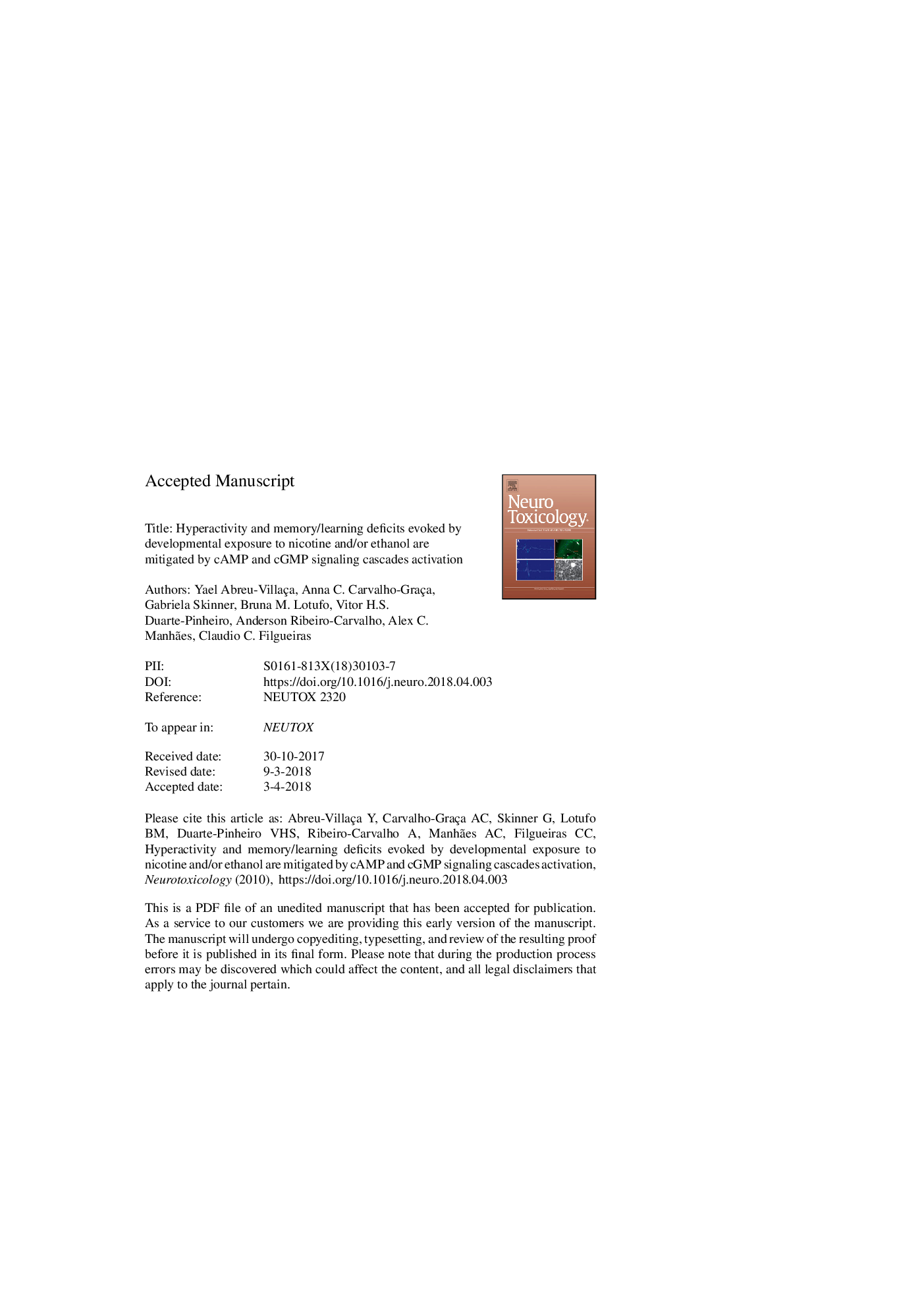| Article ID | Journal | Published Year | Pages | File Type |
|---|---|---|---|---|
| 8550145 | NeuroToxicology | 2018 | 31 Pages |
Abstract
Pregnant smoking women are frequently episodic drinkers. Here, we investigated whether ethanol exposure restricted to the brain growth spurt period when combined with chronic developmental exposure to nicotine aggravates memory/learning deficits and hyperactivity, and associated cAMP and cGMP signaling disruption. To further investigate the role of these signaling cascades, we verified whether vinpocetine (a phosphodiesterase inhibitor) ameliorates the neurochemical and behavioral outcomes. Swiss mice had free access to nicotine (NIC, 50â¯Î¼g/ml) or water to drink during gestation and until the 8th postnatal day (PN8). Ethanol (ETOH, 5â¯g/kg, i.p.) or saline were injected in the pups every other day from PN2 to PN8. At PN30, animals either received vinpocetine (20â¯mg/kg, i.p.) or vehicle before being tested in the step-down passive avoidance or open field. Memory/learning was impaired in NIC, ETOH and NICâ¯+â¯ETOH mice, and vinpocetine mitigated ETOH- and NICâ¯+â¯ETOH-induced deficits. Locomotor hyperactivity identified in ETOH and NICâ¯+â¯ETOH mice was ameliorated by vinpocetine. While cyclic nucleotides levels in cerebral cortex and hippocampus were reduced by NIC, ETOH and NICâ¯+â¯ETOH, this outcome was more consistent in the latter group. As observed for behavior, vinpocetine normalized NICâ¯+â¯ETOH nucleotides levels. pCREB levels were also increased in response to vinpocetine, with stronger effects in the NICâ¯+â¯ETOH group. Exposure to both drugs of abuse worsens behavioral and neurochemical disruption. These findings and the amelioration of deleterious effects by vinpocetine support the idea that cAMP and cGMP signaling contribute to nicotine- and ethanol-induced hyperactivity and memory/learning deficits.
Keywords
Related Topics
Life Sciences
Environmental Science
Health, Toxicology and Mutagenesis
Authors
Yael Abreu-Villaça, Anna C. Carvalho-Graça, Gabriela Skinner, Bruna M. Lotufo, Vitor H.S. Duarte-Pinheiro, Anderson Ribeiro-Carvalho, Alex C. Manhães, Claudio C. Filgueiras,
